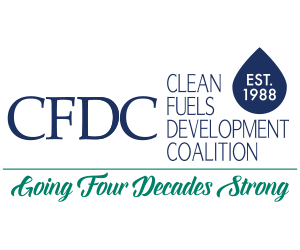Washington, D.C., October 10, 2019: The Clean Fuels Development Coalition (CFDC) today applauded the efforts of a disbanded EPA advisory panel on particulate pollution as they reconvene to continue their work, despite the lack of government support.
With a focus on particulate matter, the group of distinguished researchers, scientists, and other experts has expressed concerns over inadequate particulate controls, particularly from fossil fuels. CFDC responded to a call for comments by urging the group to recognize the critical role gasoline emissions play as the predominant source of ultrafine pm.
“We believe the issue of fine particulate matter is grossly ignored by EPA and the scientific expertise your panel provides is critical to ensuring maximum standards and controls. By EPA’s own admission they fail to account for polycyclic aromatic hydrocarbons (PAH’s) and have ignored the overwhelming evidence of the causation as it relates to gasoline,” said CFDC in their comments. “We urge this panel to include the importance of regulating mobile source air toxics as a key consideration in setting ambient particulate standards. Coupling standards with enforcement of existing provisions such as section 202 (l) of the CAAA, i.e. the toxics provision, is critical if we are to provide maximum public health protection.”
The comments also noted that the highly carbon intensive toxic aromatic compounds refiners use to increase octane produce microscopic benzene-based emissions that defy any vehicle filtering technology and equally defy the human lung as a filtering mechanism. A much cleaner source of octane is available with higher ethanol blends, and the pending Safe Affordable Fuel Efficiency (SAFE) rule has solicited comments on the role of octane.
“EPA is required to reduce mobile source air toxics,” said CFDC Executive Director Douglas Durante, “They have acknowledged ethanol is a superior source of octane and by increasing the minimum octane standard while enforcing toxics controls they can protect public health, provide options for increased auto efficiency, reduce greenhouse gas emissions, and open new markets for biofuels. The SAFE rule is the pathway to those benefits.”
The Panel plans to continue their research and work with EPA staff, with public meetings being held this weeks and future meetings planned.
